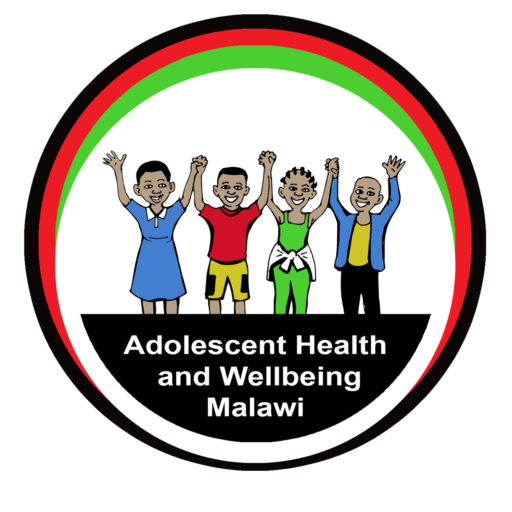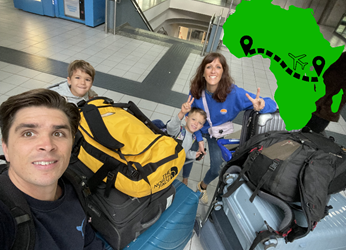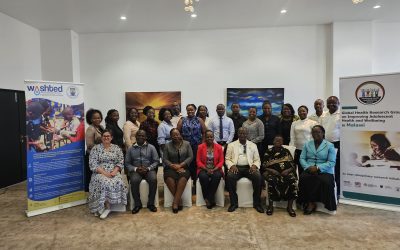The In-Person NIHR-GHRG Consortium Meeting for the year 2023, held in Glasgow from September 4th to 8th, was a resounding success. This annual event is requirement from our funding authority, the NIHR, serving as a critical juncture for monitoring progress, reflecting on the Theory of Change, and planning for the year ahead. The meeting provided a valuable opportunity for all project collaborators, including the University of Strathclyde, Kamuzu University of Health Sciences, and the Malawi University of Business and Applied Sciences, to come together and work towards a shared vision.
Agenda and Work Strands:
Throughout the week, attendees from our six Work Strands engaged in focused discussions and networking sessions. These sessions offered a unique opportunity to exchange knowledge and collaborate on the feedback received from our funder’s evaluation of the submitted annual report. We value the diverse perspectives that each Work Strand brings to the table, contributing to a rich and holistic approach to our research endeavours.
The meeting took place at the University of Strathclyde Campus, specifically at the Technology and Innovation Centre Conference Rooms. The venue provided an ideal setting for Work Strand engagement, complete with breakout spaces and cutting-edge facilities.
Training and Innovation:
One of the highlights of the meeting was the training sessions, which featured Responsible Innovative Frameworks delivered by the experts at Data for Children, Edinburgh. This collaboration was particularly significant due to the unique positioning of the Data for Children Collaborative within the Edinburgh Futures Institute at the University of Edinburgh. Their expertise in addressing child-centric challenges through data-driven solutions aligns closely with our project’s goals. The Collaborative has a remarkable track record of innovation, developing pioneering models and approaches that promote impactful collaborations across various sectors.
Community Engagement and Innovation:
Our commitment to community engagement and involvement training is at the heart of our mission to foster inclusive, collaborative, and community-driven approaches for addressing challenges and enhancing well-being. We are guided by several key principles, including the strengthening of cross-sector partnerships, which enables us to facilitate social connections and collaborative relationships among stakeholders from diverse sectors. By involving communities in decision-making and implementation, we empower them to actively shape their futures and influence the matters that affect their lives. Building trust with the communities we serve is a fundamental aspect of our approach, recognizing that trust is essential for effective collaboration and successful outcomes. Through community engagement, we cultivate a sense of ownership and commitment within the communities, aligning our project’s goals with their aspirations.
During our meeting, a significant focus was on the potential establishment of an Intergenerational Committee, bridging the gap between adolescents and policy makers. This initiative aims to unite these two distinct groups systematically to jointly identify and address issues of mutual interest. By fostering collaboration between adolescents and adults, we anticipate the development of more effective and relevant practice and policy solutions. This is achieved through a comprehensive understanding of adolescents’ experiences and outcomes. Our objective is to empower adolescents by enabling them to inform and advise policy-making processes based on their lived experiences, simultaneously enhancing the competence of policy makers in developing outcomes-oriented policies enriched by insights from adolescents. This initiative strives to create a cadre of policy makers who are not only more receptive to the needs and perspectives of adolescents but also actively engage with their input in shaping policies. In addressing complex challenges, we recognize the need for a whole-of-government response, and the collaboration between adolescents and policy makers can build support for multifaceted solutions that transcend individual agency boundaries. Importantly, this initiative is designed to ensure the sustainability of our project’s findings, as integrating intergenerational perspectives into policy making allows the impact of our work to endure beyond the project’s lifespan.
An Intergenerational Committee signifies our unwavering commitment to fostering a dynamic partnership between adolescents and policy makers. This partnership promises to enrich our project’s outcomes, empower adolescents, and create a lasting legacy of positive change in policy and practice.
In our commitment to shaping a brighter future for adolescents in Malawi, we prioritize equipping and empowering both adolescents and policymakers. By encouraging active engagement as advocates, research partners, and peer researchers, we aim to foster a collaborative environment that transcends power dynamics. We recognize the importance of navigating existing power imbalances, especially in intergenerational dialogues involving complex political contexts. Our dedication to youth empowerment initiatives is exemplified through the inclusion of youth in dialogue forums, the establishment of active Youth Parliaments, and the inception of intergenerational platforms, providing inspiration and setting positive examples.
Addressing challenges at the community level, where social norms often discourage young voices in the presence of elders, requires tailored strategies that amplify youth voices. To achieve these goals, we draw valuable lessons from past successful initiatives, embracing their ambitious objectives, mechanisms, and implementation strategies. By researching the impact of initiatives like UNICEF’s “U-Report” and Youth Accountability efforts, we gain valuable insights that inform our own replicable approaches and create an enabling environment for transformative change.
Capacity Building:
In addition to community engagement, we are actively involved in capacity building, particularly training our Peer Researchers. This training extends to their roles as both researchers and advocates, aligning our initiatives at the local level with local policy implementers. This process involves assessing available structures, current training and engagement mechanisms, and gathering feedback from adolescents and other stakeholders to understand how engagement is being received and perceived.
Our dedication to these principles and our commitment to capacity building are vital steps toward achieving our goal of actively shaping the future of adolescent health and well-being in Malawi. We look forward to further collaborations and progress as we continue our journey to make a lasting impact.
Networking Social:
To raise awareness and foster connections within the broader research and subject expert community, the Research Group hosted a Networking Social in collaboration with the Scotland Malawi Partnership. This event highlighted our dedication to interdisciplinary research initiatives aimed at improving adolescent health and well-being in Malawi. It provided a unique opportunity for professionals to connect, share insights, and stay updated on the latest advancements in adolescent health and well-being research.
The impact of this event was truly remarkable. It allowed our Group to expand their networks, facilitated the exchange of ideas, and inspired collaboration that will undoubtedly lead to innovative approaches and solutions in the field of adolescent health and well-being.
We’re excited about the progress made during this meeting and look forward to implementing the insights and knowledge gained to advance our research objectives. The collective dedication and expertise of our teams, combined with the partnerships we’ve formed, position us to make a significant impact in the lives of adolescents in Malawi. – by Pamela Dube (Programme Manager – UoS)
This research was funded by the NIHR (NIHR133128) using UK aid from the UK Government to support global health research. The views expressed in this publication are those of the author(s) and not necessarily those of the NIHR or the UK government.”




